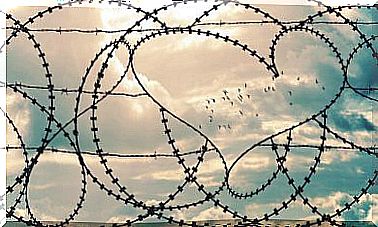Need For Cognitive Closure: Measuring The Tolerance To Uncertainty

Throughout life, each of us has to face uncertainty. Unforeseeable events and circumstances for which experience helps us little. However, not everyone reacts equally to unclear situations. Some people feel more comfortable in this cognitive limbo, while others need to have a solution as soon as possible. These are the differences that are measured by the test on the need for cognitive closure.
If we analyze the people around us, we can find those who have difficulty making firm decisions, to say in advance or express their opinion or those who prefer order, routine and have clear and well-defined ideas.
If you want to know which group you belong to, you can get an idea with the test we are about to present to you.

What is the need for cognitive closure?
This concept refers to the preoccupation with seeking and obtaining a definitive answer to a problem or event. It is an aversion to confusion, uncertainty and ambiguity.
Although external circumstances may influence our response, we are all predisposed to take a relatively stable position. The need for cognitive closure is established around two different trends:
- The urgent trend. It refers to the need to obtain an immediate response to an uncertain situation. For example: “When will they tell me if I passed the job interview?”. Those who have a marked tendency to urgency and are quick when making decisions can experience great anguish in the absence of concreteness.
- Tendency to maintain. It defines the strong desire to maintain and perpetuate the cognitive closure achieved. There is a need to keep the knowledge that has been obtained stable and firm by avoiding any new information that could shake the stability offered by that knowledge.
The test on the need for cognitive closure
The test on the need for cognitive closure is a tool that allows you to measure the tendency of each individual. This test features 42 items, but today we will present a stripped down version.
It consists of 14 statements to which an answer must be given by assigning a score between 1 (totally disagree) and 6 (totally agree) based on the statements that represent us the most.
Test statements on the need for cognitive closure
- In case of uncertainty, I prefer to make an immediate decision, whatever it is.
- When faced with several potentially viable alternatives, I quickly decide in favor of one without hesitation.
- I prefer to decide based on the first available solution, rather than considering in detail what decision I should make.
- I feel very uncomfortable when things around me are not in order.
- I generally avoid participating in discussions on ambiguous and controversial topics.
- When I have to face a problem, I don’t think about it much and I go away without hesitation.
- When I have to solve a problem, I generally don’t waste time considering different points of view.
- I prefer to be with people who have the same ideas and tastes as me.
- I generally don’t look for alternative solutions to problems for which I already have a solution available.
- I feel uncomfortable when I can’t quickly find a solution to a problem I’m facing.
- Any solution to a problem is preferable to remaining in a state of uncertainty.
- I prefer activities where it is always clear what needs to be done and how it should be done.
- After finding the solution to a problem, I consider it a waste of time to look for other possible solutions.
- I prefer situations I am used to over those I don’t know and can’t predict.

Interpretation
To get the final result, just mark a score between 1 and 6 next to each statement. The sum of the scores will oscillate between 0 and 84. The higher the value, the greater the need for cognitive closure.
The need for cognitive closure affects our ability to generate hypotheses and find alternatives to the situations presented to us. But it also affects our ability to be more or less empathetic, tolerant or flexible or when it comes to making a judgment or having an opinion.









